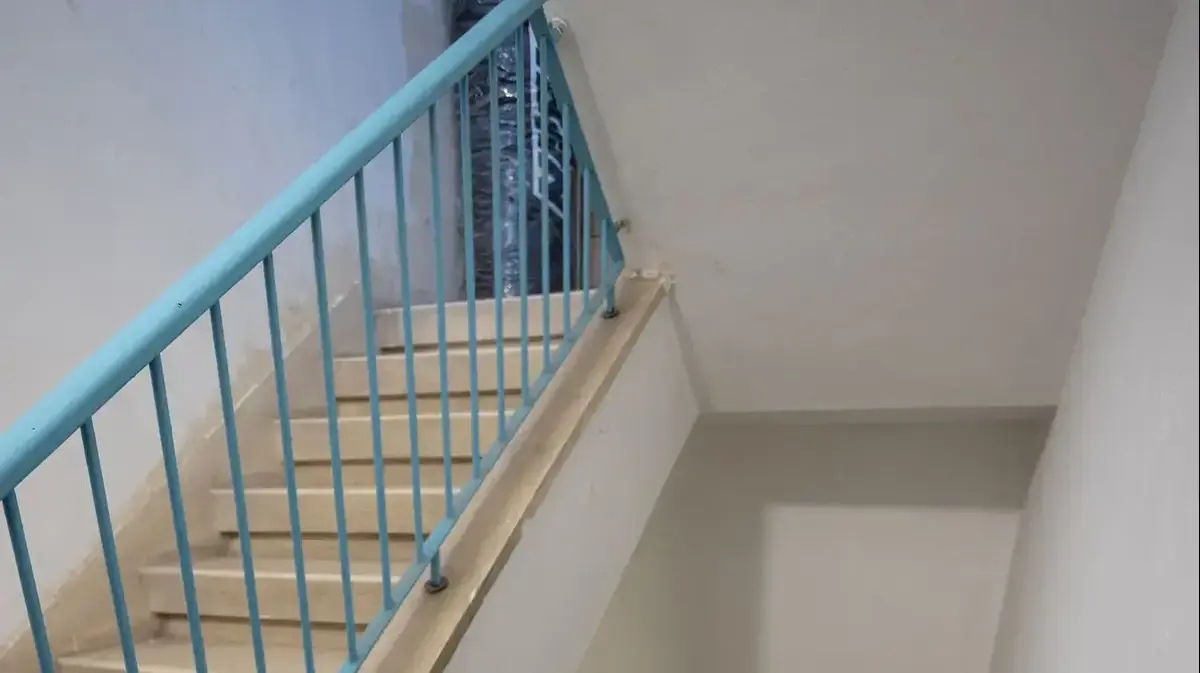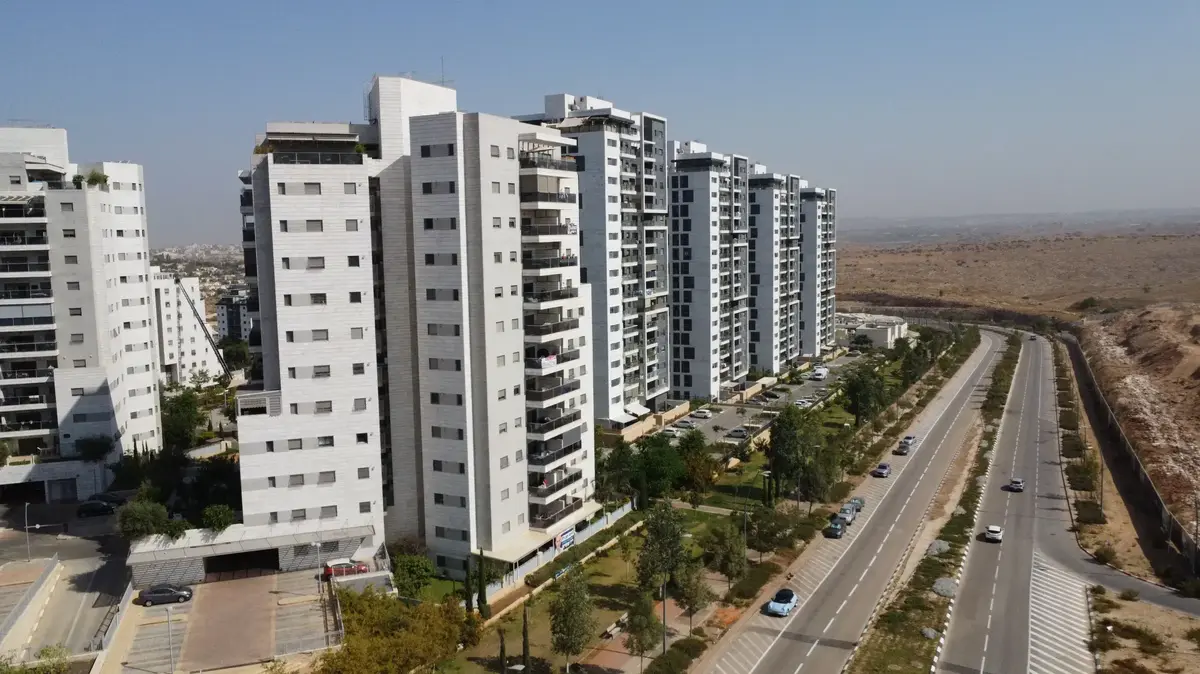A housing apartment in Givatayim where time stood still in the 1960s (Photo: Courtesy of those photographed, Niki Truk)
The Israel of the 60's of the last century was a light to the Gentiles in regards to affordable housing that was available to tenants whose hands were not able to afford it.
In those days, the Amidar company owned and managed about 200,000 apartments that were rented mainly to beneficiaries of the Ministry of Construction and Housing.
However, since the end of the 90's of the last century until today, the number of apartments owned by Amidar has gradually decreased, mainly due to laws designed to anchor the legal status of the tenants and transfer the apartments to their ownership.
And so, if in the 1960s Amidar owned and managed about 200,000 apartments, which were rented mainly to beneficiaries of the Ministry of Construction and Housing, in 2008 the number of apartments reached about 70,000, and as of August 2021, the stock of public housing amounted to only 52,000 apartments, where people live About 122,000 tenants.
Moreover, in 2011 the Israel Land Authority managed only about 7,400 apartments, compared to about 20,000 apartments over 20 years ago.
Today the number is much lower.
What happened to the Amidar apartments in Dimona? (Photo: official website, Il Yitzhar, Globes)
"There is public housing in the world and a lot of it, one that is livable and people from the middle class also live in it," said the CEO of the Public Housing Forum, Danny Gigi recently. "There is no reason for Israel to be an exception in this matter.
If in Europe 12% of the apartments are public apartments, there is no reason why there are only 2% here and we must immediately increase budgets and act to increase the inventory."
In fact, only yesterday (Wednesday) the CEO of the Israel Land Authority, Yankee Quint, spoke on this issue at a meeting of CEOs which took place at the initiative of the "Media Real Estate", when he said that in his opinion the stock of public housing should be increased.
"Land and rewards from land should be used to influence economic policy," Quint said.
"Last year we brought in 65 billion shekels from tenders. These amounts should be used for the economic policy of the state, to influence the rental market, urban renewal in areas that are not economically viable, or in public housing, we have an argument with the Treasury on this issue, we think that rewards should be used for housing purposes sociality, and the treasury reduces our room for maneuver."
More in Walla!
It's so delicious and simple: a recipe for caramelized bananas
In collaboration with the Galil company
"Combination deals instead of selling land"
In his words, Quint referred to the program dictated earlier by the founder and managing partner of the Foundation Foundation, Yaacov Siso, who read from a series of programs how housing prices can be lowered, and emphasized, among other things, the importance of increasing public housing.
"When I was little, most of the apartments in Dimona belonged to Amidar. Today there are no such apartments at all. They sold them and did not increase the inventory back," he said.
The plan presented by Siso and forwarded to the Ministry of Construction and Housing states that there must be a reform in the marketing of land by the Israel Land Authority, when instead of selling land in cash, combination transactions will be carried out with real estate companies.
According to the proposal, competition for RMI tenders will be done between real estate companies "N and entrepreneurs who offer the highest combination rate. "An entrepreneur who offers the highest combination rate - will win the tender," the proposal reads. What will happen in peripheral areas where the value of the land rights is low? In this case, according to the proposal, the government will consider subsidizing the cost of development for the entrepreneur.
The public housing in Be'er Sheva (Photo: Shai Makhlouf)
"Through this auction method, the state converts land into apartments," Sisso explains, "so that the state does not give up its rights and even increases the value of its assets. The state will be able to decide what to do with the apartments it receives in accordance with the individual policies it will establish. It will be able to manage the apartments through an apartment company to rent and offer them at a reduced rent to selected underprivileged population groups, or you can cooperate with REIT funds that will manage the apartments. Of course, the state will also be able to sell the apartments to selected underprivileged populations and control the discount rate that will be given to the various populations."
According to Siso's approach, the proposed marketing method will speed up and dramatically increase the stock of apartments intended for rent and contribute to the development of a stable rental market that currently almost does not exist in Israel, "the proposed marketing method will quickly renew the stock of public apartments - a stock that was large in the distant past and has dwindled significantly in recent years".
Discount for the buyer instead of the product
Today, according to Siso, the discount is given by a lottery method, which has nothing to do with social consideration.
More than that, it turns out that powerful populations received large discounts in the existing marketing methods at the expense of disadvantaged populations.
"A young couple who wins the lottery and buys an apartment in Dimona will receive a small discount compared to a young couple with capital who registers for the lottery in areas of high demand. A couple who wins the lottery in Herzliya, for example, will receive a discount of a large amount that in some cases can reach over a million shekels. We see in practice that the chances of winning lotteries are slim, and therefore It is not fair that the discount will be given to so few and without any social selection when the biggest discounts are given to the most powerful."
Will the Treasury agree to reduce the state's revenues?
Sisso estimates that there is such a possibility that there will be elements in the Treasury who may oppose the plan, because it harms the flow of income from the sale of rami lands, but on the other hand, today's credit market and the high interest rates will also reduce the attractiveness of rami tenders and lead to a decrease in the number of participants in the tenders, hence - Also for the decrease in the price of land.
"I predict that this phenomenon will increase as the pressures in the market increase," says Sisso, "the proposed new marketing method will increase the attractiveness of RMI tenders, as well as increase marketing in days of rising interest rates and market instability.
It goes without saying that the state's income from the real estate industry comes not only from the sale of Rami's land, but also, and especially from the real estate taxes and VAT for the transactions, so that indirectly the proposed marketing method will of course contribute to increasing the state's income from real estate taxes and VAT."
Real estate
news
Tags
real estate















